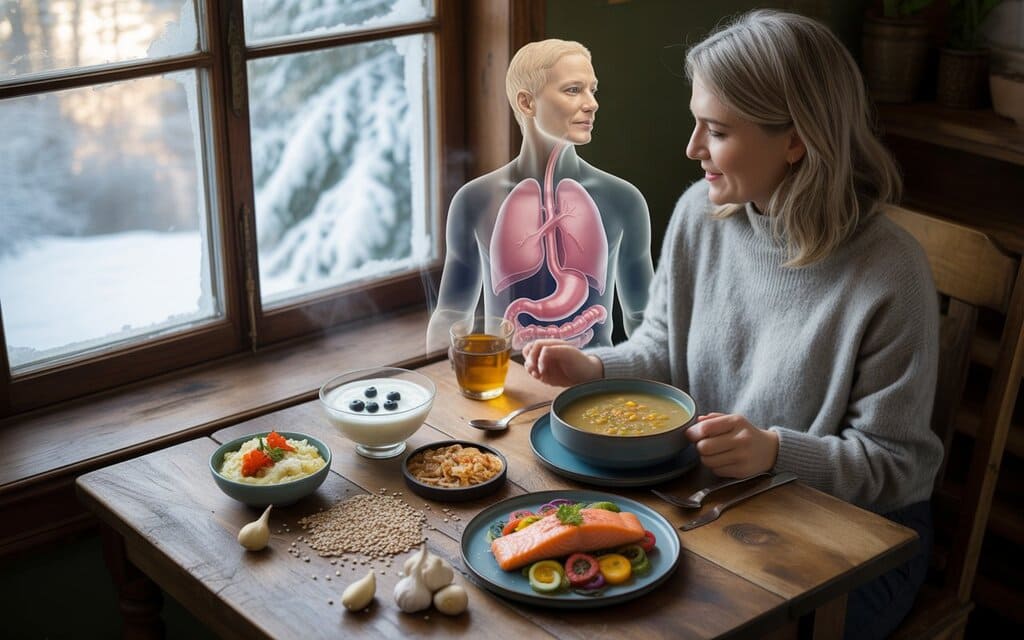
Introduction
The digestive system is a vital part of the human body, responsible for breaking down food and absorbing essential nutrients to sustain health and energy. However, a significant number of people worldwide suffer from digestive system issues that severely impact their quality of life. These issues can range from mild discomforts like heartburn, bloating, and constipation, to more chronic conditions like Irritable Bowel Syndrome (IBS) and Gastroesophageal Reflux Disease (GERD).
Recent medical studies have shown that digestive disorders are often linked to lifestyle habits, dietary patterns, stress, and even medication use. In this article, we explore the most common digestive problems, their causes, symptoms, and scientifically backed treatments to help restore gut health and improve daily well-being.
Most Common Digestive System Issues
1. Heartburn (Acid Reflux)
Heartburn occurs when stomach acid flows back into the esophagus, causing a burning sensation in the chest. It’s one of the most reported gastrointestinal complaints.
Causes:
- Fatty and fried foods
- Spicy dishes
- Caffeine and alcohol
- Smoking
- Lying down after meals
Treatment:
- Avoid trigger foods
- Eat smaller meals
- Elevate the head while sleeping
- Use antacids or proton-pump inhibitors (PPIs)
🔬 Medical Insight: According to the American College of Gastroenterology, lifestyle modification reduces acid reflux symptoms by over 50% when consistently applied.
2. Constipation
Constipation is defined by infrequent bowel movements, typically fewer than three per week, and difficulty passing stool.
Causes:
- Low fiber intake
- Dehydration
- Sedentary lifestyle
- Medications such as antidepressants and iron supplements
Treatment:
- Increase fiber intake (vegetables, fruits, whole grains)
- Drink plenty of water
- Regular physical activity
- Natural laxatives or medical consultation if chronic
Keyword : Digestive health remedies for constipation
3. Diarrhea
Diarrhea involves frequent, watery stools and may be acute or chronic. It’s a defense mechanism against infections but can be dangerous if prolonged.
Causes:
- Viral or bacterial infections
- Food intolerances
- Inflammatory conditions like IBS
- Antibiotic overuse
Treatment:
- Oral rehydration therapy (ORS)
- Avoid spicy or greasy foods
- Use probiotics (e.g., Lactobacillus rhamnosus)
- Seek medical help if symptoms last more than two days
📊 Infographic Suggestion:
A pie chart showing causes of diarrhea: 35% infections, 20% food allergies, 15% IBS, 10% antibiotics, 20% unknown.

4. Bloating and Gas
Bloating is a feeling of abdominal fullness or tightness, often accompanied by excessive gas and discomfort.
Causes:
- Eating too quickly
- Consumption of gas-producing foods (beans, cabbage, carbonated drinks)
- Food intolerances (e.g., lactose or gluten)
- Imbalance in gut bacteria
Treatment:
- Eat slowly and chew thoroughly
- Avoid carbonated drinks
- Use herbs like peppermint, fennel, and ginger
- Try digestive enzyme supplements
Main Causes of Digestive Disorders
1. Poor Diet
Eating high-fat, processed foods and low-fiber meals disrupts digestion and the gut microbiome.
2. Lack of Physical Activity
Exercise stimulates intestinal movement; a sedentary life slows digestion and contributes to constipation.
3. Stress and Anxiety
Stress affects hormone levels, altering digestion speed and sensitivity, often leading to IBS or reflux.
4. Medication Side Effects
Drugs like NSAIDs, antibiotics, and opioids can damage gut lining or affect gut flora balance.
Recent Scientific Studies
📚 Study 1: A 2023 report in Gastroenterology revealed that a fiber-rich diet lowered digestive complaints by 40%. High-fiber foods improved gut motility and balanced microbiota composition.
📚 Study 2: Clinical Gastroenterology and Hepatology published findings that Cognitive Behavioral Therapy (CBT) helped reduce IBS symptoms by up to 60%, suggesting strong ties between mental health and digestive disorders.
📚 Study 3: Research from Harvard Medical School emphasized the role of probiotics in treating chronic bloating and post-antibiotic diarrhea by restoring healthy gut flora.
Practical Tips for Managing Digestive Health
✅ Dietary Adjustments
- Eat smaller, frequent meals
- Include high-fiber foods daily
- Avoid irritants like caffeine, alcohol, and fried foods
✅ Healthy Habits
- Stay hydrated with 2–3 liters of water per day
- Exercise for at least 30 minutes most days of the week
- Use relaxation techniques such as yoga, deep breathing, or meditation
✅ Medical Consultation
- Persistent symptoms (beyond 1–2 weeks) require a doctor’s evaluation
- Diagnostic tests (endoscopy, stool analysis) may uncover deeper issues
🧠 Pro Tip: A food diary can help identify personal triggers of digestive upset.
Conclusion
Digestive system issues affect millions worldwide, yet most can be managed or even prevented through lifestyle changes, nutritional adjustments, and timely medical support. Whether you’re battling occasional bloating or dealing with chronic constipation, a proactive approach makes a real difference.
A balanced diet rich in fiber, regular exercise, stress management, and being informed about medications are all pillars of strong digestive health. When necessary, don’t hesitate to consult a gastroenterologist to rule out serious conditions.
By prioritizing your gut health, you’re not just easing discomfort—you’re investing in your overall wellness.





